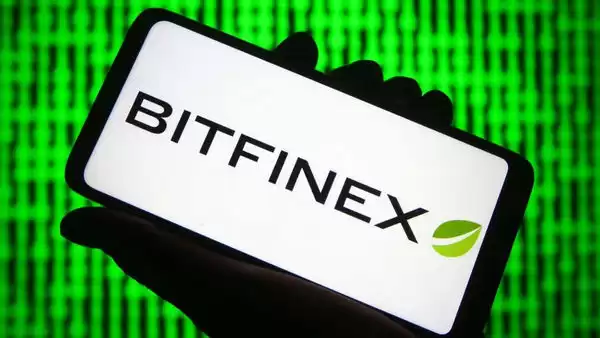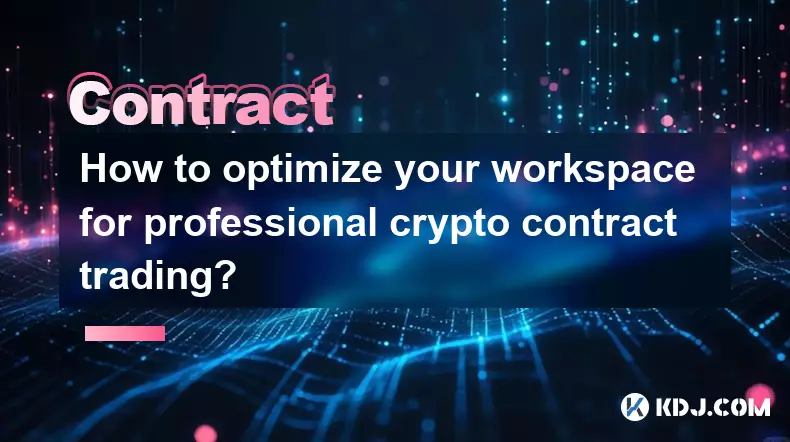-
 bitcoin
bitcoin $87959.907984 USD
1.34% -
 ethereum
ethereum $2920.497338 USD
3.04% -
 tether
tether $0.999775 USD
0.00% -
 xrp
xrp $2.237324 USD
8.12% -
 bnb
bnb $860.243768 USD
0.90% -
 solana
solana $138.089498 USD
5.43% -
 usd-coin
usd-coin $0.999807 USD
0.01% -
 tron
tron $0.272801 USD
-1.53% -
 dogecoin
dogecoin $0.150904 USD
2.96% -
 cardano
cardano $0.421635 USD
1.97% -
 hyperliquid
hyperliquid $32.152445 USD
2.23% -
 bitcoin-cash
bitcoin-cash $533.301069 USD
-1.94% -
 chainlink
chainlink $12.953417 USD
2.68% -
 unus-sed-leo
unus-sed-leo $9.535951 USD
0.73% -
 zcash
zcash $521.483386 USD
-2.87%
Bitfinex contract trading rules
Bitfinex's comprehensive contract trading rules establish guidelines for market structure, order types, margin requirements, liquidation, settlement procedures, market supervision, and dispute resolution to ensure equitable trading on the platform.
Nov 11, 2024 at 01:54 pm

Bitfinex Contract Trading Rules: A Comprehensive Overview
Bitfinex is a renowned cryptocurrency exchange known for its advanced trading platform and extensive product offerings. One such offering is contract trading, which allows users to gain leveraged exposure to cryptocurrencies without owning the underlying assets. To ensure fair and orderly trading, Bitfinex has established a set of comprehensive rules and regulations. This article provides an in-depth analysis of these contract trading rules, addressing critical questions and unraveling the intricacies of contract trading on Bitfinex.
1. What Are Bitfinex Contract Trading Rules?
Bitfinex contract trading rules are a collection of guidelines and regulations that govern the trading of cryptocurrency contracts on the platform. These rules encompass various aspects of contract trading, including market structure, order types, margin requirements, and settlement procedures. Adherence to these rules is paramount for traders to maintain a level playing field and prevent market manipulation or illegal activities.
2. Market Structure
Bitfinex offers two types of contract markets:
- Perpetual: These contracts do not have an expiry date and track the underlying cryptocurrency's spot price.
- Futures: These contracts have predetermined expiry dates and allow traders to speculate on the future price of cryptocurrencies.
3. Order Types
Bitfinex supports a range of order types to accommodate diverse trading strategies:
- Limit Order: Submits an order to buy or sell a contract at a specified price.
- Market Order: Executes an order immediately at the prevailing market price.
- Stop Order: Triggers a limit order when the contract price reaches a set threshold.
- Trailing Stop: A dynamic stop order that moves a stop order by a fixed amount in a specified direction.
4. Margin Trading
Margin trading on Bitfinex allows traders to amplify their trading exposure by borrowing funds from the platform. The following points elaborate on margin-related rules:
- Margin Requirements: Bitfinex establishes minimum margin requirements for each contract, ensuring traders have sufficient funds to cover potential losses.
- Initial Margin: The initial margin is a percentage of the contract's notional value required to open a position.
- Maintenance Margin: Once a position is open, the maintenance margin is the minimum margin level traders must maintain to prevent liquidation.
- Leverage: Leverage is the ratio of borrowed funds to equity. Higher leverage amplifies potential profits but also increases the risk of losing funds if the market moves against the trader.
5. Liquidation and Auto-Deleveraging
In the event that a trader's margin falls below the maintenance margin, Bitfinex may initiate liquidation or auto-deleveraging:
- Liquidation: Liquidation occurs when Bitfinex forcibly closes the position to cover the deficit.
- Auto-Deleveraging: Bitfinex may automatically close a portion of a trader's positions, reducing leverage and maintaining the required margin level.
- Funding: Bitfinex charges funding fees on a regular basis to keep the prices of perpetual contracts aligned with the spot market.
6. Settlement Procedures
Contract settlement on Bitfinex typically occurs at the contract's expiry date:
- Cash Settlement: Perpetual contracts are cash-settled, meaning traders receive or pay the difference between the opening and closing price.
- Physical Settlement: Futures contracts are physically settled, resulting in the delivery of the underlying cryptocurrency to the buyer.
7. Market Supervision and Surveillance
Bitfinex employs rigorous market supervision and surveillance mechanisms to maintain the integrity of its trading platform:
- KYC and AML Compliance: Bitfinex adheres to strict Know Your Customer (KYC) and Anti-Money Laundering (AML) regulations to prevent illegal activities on the platform.
- Trade Surveillance: Bitfinex utilizes advanced monitoring tools to detect and investigate suspicious trading patterns or market manipulation attempts.
- Market Halts: Bitfinex may temporarily suspend trading in specific contracts or the entire platform if market conditions warrant.
8. Dispute Resolution
In the event of a dispute related to contract trading, traders may initiate a resolution process through the Bitfinex support team:
- Initial Contact: Traders should first contact Bitfinex support with a detailed explanation of the dispute.
- Formal Dispute: If the issue cannot be resolved through initial contact, traders may file a formal dispute.
- Review and Response: Bitfinex will review the dispute and provide a written response within a specified time frame.
Conclusion
Bitfinex contract trading rules provide a comprehensive framework for the trading of cryptocurrency contracts on the platform. These rules address various aspects of contract trading, including market structure, order types, margin requirements, settlement procedures, market supervision, and dispute resolution. By adhering to these rules, traders can participate in the contract trading markets with confidence, knowing that the platform operates in a fair, orderly, and transparent manner.
Disclaimer:info@kdj.com
The information provided is not trading advice. kdj.com does not assume any responsibility for any investments made based on the information provided in this article. Cryptocurrencies are highly volatile and it is highly recommended that you invest with caution after thorough research!
If you believe that the content used on this website infringes your copyright, please contact us immediately (info@kdj.com) and we will delete it promptly.
- ETH Transfer Sparks Panic Selling, Wipes Out Trader in Major Crypto Shake-Up
- 2026-02-02 15:40:01
- Bitcoin’s Wild Ride: Crypto Market Faces Price Drop Amidst Extreme Fear and Macro Headwinds
- 2026-02-02 12:30:01
- Ross Stores Dominates Off-Price Retail with Brick-and-Mortar Prowess Amidst Economic Shifts
- 2026-02-02 13:20:01
- Cong, Leviste, DOE Slap: Billionaire Faces $24B Penalty Amidst Renewable Energy Promises
- 2026-02-02 13:20:01
- Bitcoin Vulnerabilities Exposed in Brutal Crypto Crash, Highlighting Market Immaturity
- 2026-02-02 13:15:02
- Unlocking Fortunes in Your Pocket: UK Coins Could Make You £1,000 Richer
- 2026-02-02 13:15:02
Related knowledge

How to close a crypto contract position manually or automatically?
Feb 01,2026 at 11:19pm
Manual Position Closure Process1. Log into the trading platform where the contract is active and navigate to the 'Positions' or 'Open Orders' tab. 2. ...

How to understand the impact of Bitcoin ETFs on crypto contracts?
Feb 01,2026 at 04:19pm
Bitcoin ETFs and Market Liquidity1. Bitcoin ETFs introduce institutional capital directly into the spot market, increasing order book depth and reduci...

How to trade DeFi contracts during the current liquidity surge?
Feb 01,2026 at 07:00am
Understanding Liquidity Dynamics in DeFi Protocols1. Liquidity surges in DeFi are often triggered by coordinated capital inflows from yield farming in...

How to use social trading to copy crypto contract experts?
Feb 02,2026 at 07:40am
Understanding Social Trading Platforms1. Social trading platforms integrate real-time market data with user interaction features, enabling traders to ...

How to trade micro-cap crypto contracts with high growth potential?
Feb 01,2026 at 02:20pm
Understanding Micro-Cap Crypto Contracts1. Micro-cap crypto contracts refer to derivative instruments tied to tokens with market capitalizations under...

How to optimize your workspace for professional crypto contract trading?
Feb 01,2026 at 08:20pm
Hardware Infrastructure Requirements1. High-frequency crypto contract trading demands ultra-low latency execution. A dedicated workstation with a mini...

How to close a crypto contract position manually or automatically?
Feb 01,2026 at 11:19pm
Manual Position Closure Process1. Log into the trading platform where the contract is active and navigate to the 'Positions' or 'Open Orders' tab. 2. ...

How to understand the impact of Bitcoin ETFs on crypto contracts?
Feb 01,2026 at 04:19pm
Bitcoin ETFs and Market Liquidity1. Bitcoin ETFs introduce institutional capital directly into the spot market, increasing order book depth and reduci...

How to trade DeFi contracts during the current liquidity surge?
Feb 01,2026 at 07:00am
Understanding Liquidity Dynamics in DeFi Protocols1. Liquidity surges in DeFi are often triggered by coordinated capital inflows from yield farming in...

How to use social trading to copy crypto contract experts?
Feb 02,2026 at 07:40am
Understanding Social Trading Platforms1. Social trading platforms integrate real-time market data with user interaction features, enabling traders to ...

How to trade micro-cap crypto contracts with high growth potential?
Feb 01,2026 at 02:20pm
Understanding Micro-Cap Crypto Contracts1. Micro-cap crypto contracts refer to derivative instruments tied to tokens with market capitalizations under...

How to optimize your workspace for professional crypto contract trading?
Feb 01,2026 at 08:20pm
Hardware Infrastructure Requirements1. High-frequency crypto contract trading demands ultra-low latency execution. A dedicated workstation with a mini...
See all articles










































































